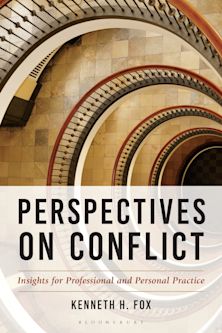Archaeology as a Tool of Civic Engagement
Barbara J. Little (Anthology Editor) , Paul A. Shackel (Anthology Editor) , Kelly M. Britt (Contributor) , Meagan Brooks (Contributor) , Robert C. Chidester (Contributor) , Chip Colwell-Chanthaphonh (Contributor) ,
- Textbook
Archaeology as a Tool of Civic Engagement
Barbara J. Little (Anthology Editor) , Paul A. Shackel (Anthology Editor) , Kelly M. Britt (Contributor) , Meagan Brooks (Contributor) , Robert C. Chidester (Contributor) , Chip Colwell-Chanthaphonh (Contributor) ,
- Textbook
Description
Archaeology as a Tool of Civic Engagement is an indispensable resource for archaeologists and the communities in which they work. The authors are intensely committed to developing effective models for participating in the civic renewal movement - through active engagement in community life, in development offor interpretive and educational programming, and for in participation in debates and decisions about preservation and community planning. Using case studies from different regions within the United States, Guatemala, Vietnam, Canada, and Eastern Europe, Little and Shackel challenge archaeologists to create an ethical public archaeology that is concerned not just with the management of cultural resources, but with social justice and civic responsibility. Their new book will be a valuable guide for archaeologists, community planners, historians, and museum professionals.
Table of Contents
Chapter 1 History, Justice, and Reconciliation
Chapter 2 Civic Engagement at Werowocomoco: Reasserting Native Narratives from a Powhatan Place of Power
Chapter 3 Beyond Strategy and Good Intentions: Archaeology, Race and White Privilege
Chapter 4 Politics, Inequality, and Engaged Archaeology: Community Archaeology along the Color Line
Chapter 5 Remaking Connections: Archaeology and Community after the Loma Prieta Earthquake
Chapter 6 Voices from the Past: Changing the Culture of Historic House Museums with Archaeology
Chapter 7 Archaeology- the "Missing Link" to Civic Engagement? An Introspective Look at the Tools of Reinvention and Reengagement in Lancaster, Pennsylvania
Chapter 8 Civil Religion and Civically Engaged Archaeology: Researching Benjamin Franklin and the Pragmatic Spirit
Chapter 9 Reconnecting the Present with its Past: The Doukhobor Pit House Public Archaeology Project
Chapter 10 Heritage in Hampden: A Participatory Research Design for Public Archaeology in a Working-Class Neighborhood, Baltimore, Maryland
Chapter 11 Civic Engagement and Social Justice: Race on hte Illinois Frontier
Chapter 12 Learning through Visitors: Exhibits as a Tool for Encouraging Civic Engagement through Archaeology
Product details
| Published | 17 May 2007 |
|---|---|
| Format | Ebook (PDF) |
| Edition | 1st |
| Extent | 1 |
| ISBN | 9798216203315 |
| Imprint | AltaMira Press |
| Publisher | Bloomsbury Publishing |
Reviews

ONLINE RESOURCES
Bloomsbury Collections
This book is available on Bloomsbury Collections where your library has access.



































